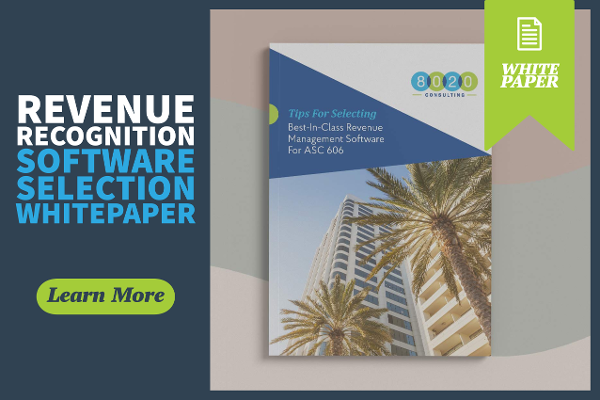Five Factors to Help You Decide Which eCommerce Platform to Choose for Your Business
- Updated on December 31, 2024
- Carlos Prado
- Approx. Read Time: 4 minutes read
- Published on January 28, 2021


With traditional brick-and-mortar stores closing, more consumers are turning to online stores both for convenience and safety during the pandemic. In terms of quantifying that shift, McKinsey measured 10 years’ eCommerce growth in 90 days in early 2020. A global survey across 11 markets by Shopify found 84% of consumers shopped online during the pandemic. Accordingly, the shift to online shopping has driven many companies to consider which eCommerce platform to choose to keep up with customers and increase sales.
Businesses can no longer avoid the online market opportunities in consumer behavior shifts due to COVID-19. To fortify their businesses, they need to understand web store platforms and applications in order to properly set up an online store. Several turn-key online platforms allow for a quick and easy setup. However, it is very important to consider a few points that will help both the initial setup and the long-term success.
There are a lot of options to pick and choose from, including:
Some are cheap, some are expensive, some are easy to use and some offer different plans and enhanced features. Choosing the right platform for your business is of utmost importance. That choice will dictate what can be offered to the consumer, how it will be paid, how it will be delivered and how much consideration of additional costs will be needed for both initial setup and ongoing operating expenses.
Although the due diligence and system selection analysis of choosing an eCommerce platform can be overwhelming, enough time should be allocated to go through the available options as your choice will impact the workflow for accounting, finance and sales departments and ultimately the bottom line on the income statement. Choosing the right store platform basically depends on the purpose, type of product and desired size of your online store, as well as the reporting needs of each department.
Some of the important factors to review and compare are:
eCommerce platform plans range from $20 to several hundred dollars a month depending on the store application features and scalability.
Based on the business needs and sales strategy, it is important to consider built-in integration with other financial systems and internal platforms that will add sales, shipping, marketing and reporting capabilities.
Some eCommerce platforms include inventory tracking and fulfillment features, which help inventory management, the number of items sold online and integration with shipping applications and ERP systems. This is extremely helpful for the accounting and operations teams to have accurate inventory counts and cost records. Additionally, special consideration should be given to the number of SKUs and categories that can be added based on the platform plan allowance as some only support a limited number of items.
This is a very important decision in the setup process as it will determine browser conversions into sales and, depending on the payment option, additional merchant-related costs. Most eCommerce platforms offer a variety of options and provide an easy connection with different payment options for the shopping cart. Some of the most common are:
Finance, Sales and Marketing teams will need to work together to determine which payment method will create more conversions while being the most cost effective. The target market and the geographical location of potential customers are key factors in choosing the right payment options.
The shipping options available on the eCommerce platform determines both overall customer satisfaction and healthy margins. Different platforms come with a variety of shipping options and shipping management tools: drop-shipping, label printing, FedEx, UPS, USPS, DHL, etc. At a minimum, it is important to consider the target customers’ location(s), the type of products sold, transit times, warehouse location and systems integration needs in order to choose the platform with the shipping options that are supportive to the business.
Many online store options include the above discussed features, and some include other settings that also need to be carefully evaluated before committing to which eCommerce platform to choose. The best decisions are made when Sales, Marketing, Finance and Accounting team up to carefully review and compare the available options.
If you’re looking for support in system selection, then we invite you to contact us to explore how we can help. We have a breadth of experience in financial system selection, implementation and post-go-live hyper care.
To learn a little more about best practices, you can download our whitepaper on ASC 606 system selection, which offers a helpful framework for consideration:

Carlos has over 20 years of experience in finance, accounting and operational leadership roles, including positions as CFO and Controller, across multiple industries such as beauty, manufacturing, e-commerce and entertainment. Throughout his career, Carlos has developed and mentored strong finance and accounting teams, led financial system implementations and created processes and internal controls for start-ups and well established companies. He has extensive experience in reporting, forecasting, budgeting, cash management, due diligence, SOX compliance and financial analysis. He began his career with Deloitte in accounting outsourcing services and moved to audit where he served a variety of client industries. Prior to joining 8020 Consulting, he was CFO at Sultra Corporation and before that, Director of Finance at ghd Professional North America. Carlos holds a Bachelor’s of Science Degree in Accounting from Universidad Tecnológica de México.
Organizations increasingly use audit management systems (AMS) to ...
Read MoreAuditing plays a vital role in ensuring compliance, managing risk, ...
Read MoreManaging compliance and security is increasingly complex, especially ...
Read More